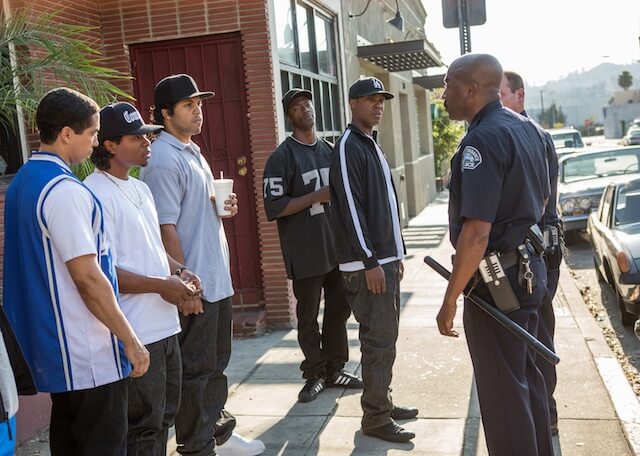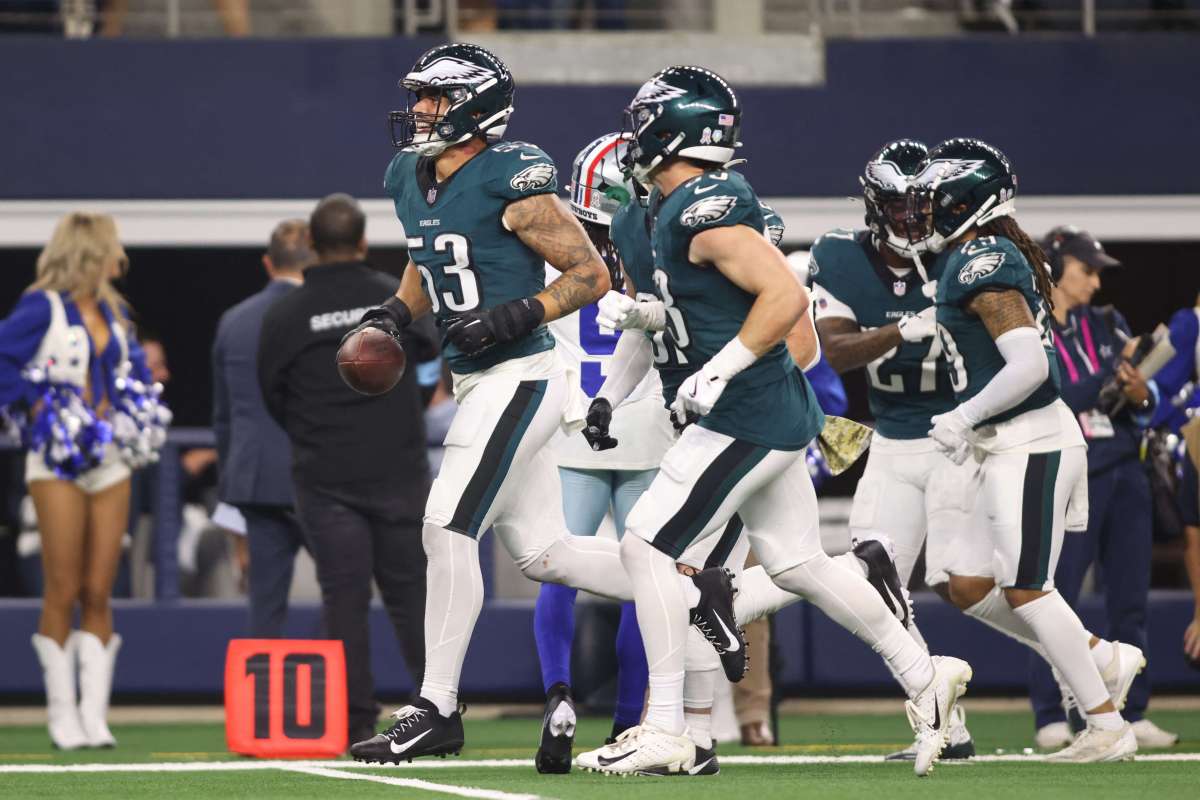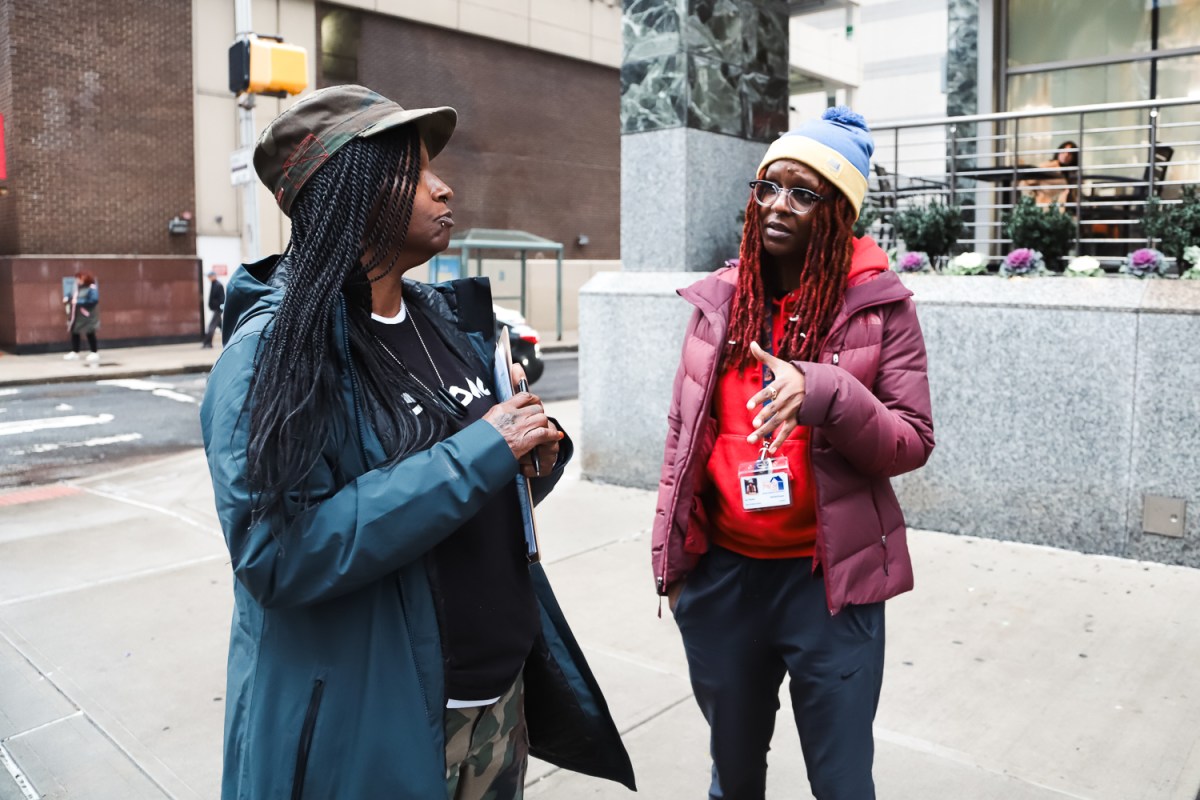‘Straight Outta Compton’ Even a cheesy biopic about N.W.A. would be a political act. It means a band had gone from once being the scourge of the right-wing and of scolds in general to becoming official Great Men, their troubled story ready to become simple myth. For the record, “Straight Outta Compton” is only part cheese. There’s on-the-nose, clumsily expository dialogue, but only occasionally. Late in, someone asks Ice Cube (O’Shea Jackson, scarily Cube-like in part because he’s his real-life son) what he’s typing on an old-timey (read: mid-1990s) computer. “This script. It’s funny,” he says as he plans what will become “Friday.” The likes of Tupac, Snoop and even Bone Thugs are introduced as though they were lumbering statues being wheeled in, and soon before he’s diagnosed as HIV positive, Eazy-E (Jason Mitchell, also uncannily lifelike) lets out some of those telling, nudge-nudge-y movie coughs. RELATED: 3 surprises about the “Straight Outta Compton” soundtrack Every scene has at least one example of these, but they also have life and, especially in the galvanizing first half, real, furious anger. A typical scene mixes unsubtle dialogue with believable-sounding chatter. No matter how hard the script tries to artlessly name-drop basic facts or things to come, the movie, as directed by F. Gary Gray (of, as it were, “Friday,” as well as “The Italian Job”), has a lived-in groove, the actors doing their best to make even the stiffest line sound off-the-cuff. Moreover, it underlines what should have been clear from their songs — because the lyrics, you know, talked about it — but were often ignored, especially by those with power: that they weren’t thugs but artists trying to beam their message of desperation from an ignored chunk of the world to the masses. That idea drives “Compton”’s stirring first half, which traces their rise in a scene that, as a club owner puts it, is about “p—y, not pistols.” They’re classic movie underdogs, beset upon by all sides — outliers in music and, worse, hounded by the police. In the film’s most harrowing scene, they’re abused by a rapper-hating black cop who, upon seeing their white agent, Jerry Heller (Paul Giamatti), calls them “Uncle Toms,” not the other way around. This turns out to be one of those cliched genesis-of-the-piece-of-art scenes from biopics; immediately after they pile into the studio and record “F— Tha Police.” But it has an immediacy and a fury that saves it from cliche. It’s exactly the kind of scene that inspires one to blast “F— Tha Police”; here, our heroes go and create it. N.W.A. only made two albums, and only one with Cube, and so the epic “Compton” stretches into their solo careers, settling on a kind of ending with the death of Eazy-E and the semi-reconciliation that came between its three main members just prior. The first half is better than the inescapably messy second, which is further complicated by the fact that Cube and Dr. Dre (Corey Hawkins) are two of the producers, and therefore protective over their image, over certain controversies and over how their enemies are portrayed. When it comes to Cube’s N.W.A.-targeted diss track “No Vaseline,” it addresses the anti-Semitism but not the homphobia. But the film overall is OK with showing them as reckless, sometimes foolish, and it doesn’t pick sides in the period when all three were engaged in public quarrels. And if Suge Knight comes off like a snarling godfather out of a 1930s Warner’s crime picture, Giamatti’s Heller is somewhere between a White Savior and a White Devil — someone who would screw you on a business deal then talk you through your inner demons, sincerely meaning to help. (Having Cube and Dre involved also means strange, offhand bits of realism, like the poster for “Child’s Play” in Eazy-E’s swank manse.) The second half also shows true commitment, sticking with characters through the rough times, examining what happens after a breakthrough smash. No longer trapped in the ghetto, each struggles to communicate their message through the occasional fog of ego, and while removed from the source, forced to watch helplessly as the Rodney King trial leads to the offending policemen’s acquittal. All the while they’re mellowing, or in Eazy-E’s case, rapidly fading. The clip show epilogue is little more than a quick-cutting epic brag, Cube and Dre showing off all their savvy business deals — Cube’s movies, Dre’s Beats by Dre, etc. — and the untold wealth it got both of them. But what proceeds it captures the way life takes strange, snake-like turns, especially for those who achieve superstardom. It’s a mix of bad biopic tropes and good ones, offering the very un-biopic message that even the fieriest firebrand chills out. It even does this without getting ’round to that time Cube remade the Cary Grant-Myrna Loy classic “Mr. Blandings Builds His Dream House.”
Director: F. Gary Gray
Stars: O’Shea Jackson Jr., Jason Mitchell
Rating: R
3 (out of 5) Globes
‘Straight Outta Compton’ gives N.W.A. their Great Men movie

Universal Pictures
Follow Matt Prigge on Twitter @mattprigge
























